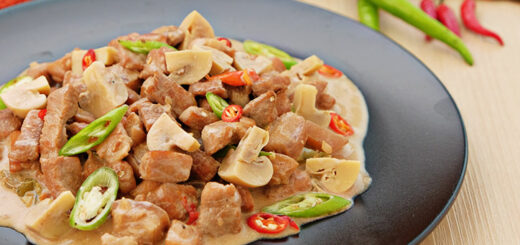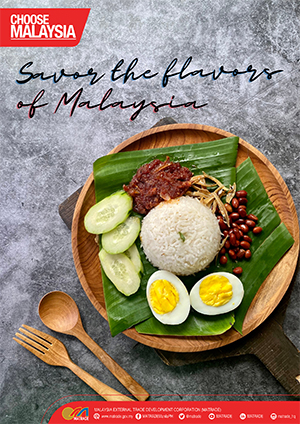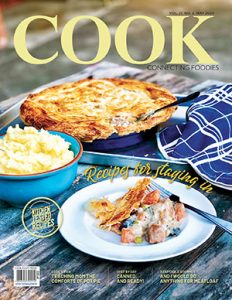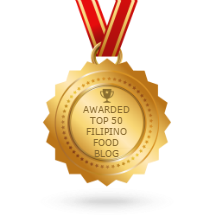Chef Jill Sandique’s Cacao Journey
A pastry chef’s cacao journey

Her work on chocolate for more than 25 years as a culinary educator and consultant has led pastry chef Jill Sandique back to a childhood passion. Chef Jill headed the board of judges at the 2021 Philippine Cacao Quality Awards (PCQA) which selected the winning entries to represent the Philippines at the Cocoa of Excellence (CoEx) Programme during the Salon du Chocolate in Paris this coming October.
Chef Jill has studied chocolate making abroad, eventually completing the Career French Pastry Program at Peter Kump’s New York Cooking School (now the Institute of Culinary Education) where she graduated with the most coveted BlueRibbon Award in 1992 (and later inducted into its Alumni Hall of Achievement). She witnessed the emergence of artisan chocolate making which nurtured her appreciation for the craft.
When she came back to the Philippines, she developed her signature pistachio sans rival and mango pavlova, the beloved specialty desserts she became known for. In between her duties as chef instructor and consultant, she worked with cocoa and chocolate manufacturers and distributors locally as well as in Singapore and Indonesia to develop recipes for them and her own clients.
Her longest collaboration at 17 years is with Commodity Quest, Inc., which exclusively imports the premium cacao powder and chocolate ingredients under the deZaanbrand.They invited Chef Nick Malgieri, her mentor, and teacher at Peter Kump’s, for the WOFEXtradeshowsto showcase chocolate recipes using deZaan.
Growing up with cacao

Chef Jill’s love for chocolate began at her family’s. Niño Farms back in her hometown of Makilala in Cotabato. The family started with crops such as coconut, coffee, cacao, corn, and rice. The farm initially produced certified palay seeds before focusing on rubber and banana as its two major crops.
Her father, the late Epifanio Al. Sandique was an agriculturist by training. Mr. Sandique worked as a banker and did agricultural research at the farm. He was part of the Philippine Cacao Committee in the late 1970s that published The Philippines Recommends for Cacao 1979.
The farm served as chef Jill’s informal training ground to learn about how farmers grow food, an experience that would later influence her work as a pastry chef. Her parents instilled the value of hard work at the farm, teaching them the key steps in growing, harvesting, and processing rice, coffee, and cacao.
“For the cacao, they would teach us how the cacao pod is harvested and we actually did some of the basic steps—something that the hands of a child can do.” The Sandiques would expose their children to farm work such that it became an integral part of their childhood.
Selecting quality Philippine cacao beans

Chef Jill regularly upgrades her chocolate know-how through training abroad especially in South and Central America with its long history and tradition of growing and processing cacao. She has studied cacao post-harvest processing, chocolate making, and chocolate profiling in the U.S., Ecuador, Peru, and Belizeas well as cacao bean grading in the Netherlands. She is the only Filipina who is a certified Level 3 graduate of the International Institute of Chocolate and Cacao Tasting in the UK.
She put to good use these trainings and her ability to discern quality cacao beans as a judge at the 2019 International Chocolate Awards (ICA)Asia Pacific in Taiwan, and at the ICA World Finals in Italy. Judges conducted a blind tasting of the chocolates from which Philippine chocolate makers won several awards.
Chef Jill also participated as a grand juror for the ICA Asia Pacific via remote online judging in 2020. Then came the opportunity to be closer to home as chairpersonfor the judging committee at the Philippine Cacao Quality Award from December 2020 to January 2021.
When selecting the best cacao beans, Chef Jill adheres to strict selection standards. She strives for perfection, a trait influenced by her training under Chef Nick Malgieri as well as her parents whose work as agriculturist and doctor respectively, relied on making the right decisions in the farm and in the hospital. Only the highest qualifiedcacao beans, cocoa and chocolate truly make it on her list.
What’s next for chef Jill

Her other work as the lead trainer and program director of the United States Department of Agriculture (USDA) Manila Council of Chefsand key opinion leader of USDA Cooperators for the past 15 years has helped her mentor others in cooking and baking with quality U.S. ingredients.
When the Puentespina family of the MalagosCacao DevelopmentCenterin Davao invited her to help train seven farmer cooperatives from Davao Oriental on post-harvest processing of cacao beans, she gladly agreed. But she requested that the farmers also be trained on the business side of cacao as well as composting waste by-productsto fully equip them.
In a sense, this is Chef Jill going back to her roots. While she will still work with clients and share recipes on social media, she wishes to spotlight the next generation of chefs. “There are new chefs coming in, pastry chefs especially. I plan to step back a little and give them the place to shine because they’re all very good,” she says.
Her life’s work now brings her back to cacao to improve the competitiveness of the local cacao industry in the international stage.She hopes to share what she has learned about cacao bean processing and educate others who have little opportunity to be formally trained. “Majority of our plants here belong to the category of fine cacao in which there is great potential.”
This potential begins with growing good cacao.As the world takes notice of Philippine chocolate, chef Jill hopes to encourage local cacao farmers to aim higher in producing the finest cacao they were destined to grow. “I hope that every cacao farmer here will be able to ferment and process their cacao in a manner that is at par with international standards, which I think is achievable.”
——————–
For recipes and updates on Chef Jill Sandique, visit her Facebook Page at https://www.facebook.com/ChefJillSandique.
Hits: 436





























Recent Comments